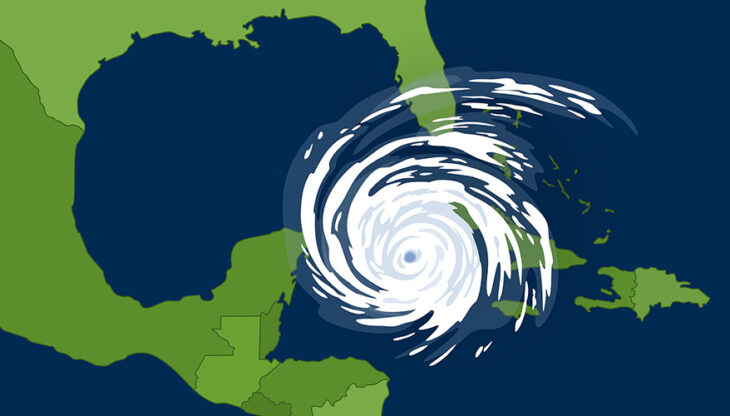It’s a prediction no one the Coast wants to hear: Hurricane season 2024 is shaping up to be a doozy.
In fact, this season, which starts June 1 and ends Nov. 30, could be one of the most active on record, according to an outlook from Colorado State University. The university’s tropical meteorology project team is forecasting 23 storms, 11 of which will become hurricanes and five of which will reach Category 3 status or stronger.
This sobering forecast comes down to a couple of factors, experts say. The first is the record-high water temperatures in the Atlantic Basin, and the second is that the El Niño climate pattern is expected to give way to La Niña. I n general, La Niña Atlantic hurricane seasons have less wind shear that can rip storms apart.
However this storm season unfolds, preparation is paramount. Don’t delay in taking steps to protect yourself, your loved ones and your property.
Here are some tips that can help you and your family weather the storm:
START WITH A SAFETY PLAN
If you go:
- Map out an evacuation route that takes you at least 20-50 miles inland. Make sure everyone knows what to do, where to go and where you will stay if a natural disaster strikes. • Before you go, unplug appliances, turn off the electricity and the main water valve and make sure you have emergency supplies; warm, protective clothing; cash and credit cards and copies of important documents.
- Make arrangements for your pets if you evacuate, as they are not allowed in most shelters.
If you stay:
- Be ready to be without power, water, gas and phone and internet service for a while. Find a place in your home where you’ll be safe from dangerous winds; the best option is a small, interior, windowless room on the lowest level that is not likely to flood. If flooding is likely, designate a place to escape to on higher ground.
- Whether you go or stay, make sure to fill up your gas tank.
STOCK UP ON SUPPLIES
Do you have a survival kit packed? According to the American Red Cross, here’s what your kit should contain, at a minimum:
- Water: one gallon per person, per day (three-day supply for evacuation, two-week supply for home)
- Food: non-perishable, easy-to-prepare items (three-day supply for evacuation, two-week supply for home)
- Flashlight
- Battery-powered or hand-crank radio (NOAA weather radio, if possible)
- Extra batteries
- Deluxe family first aid kit
- Medications (seven-day supply) and medical items
- Multi-purpose tool
- Sanitation and personal hygiene items
- Copies of personal documents (medication list and pertinent medical information, proof of address, deed/lease to home, passports, birth certificates, insurance policies), stored in a waterproof bag
- Cell phone with chargers
- Family and emergency contact information
- Extra cash
- Emergency blanket
- Area map(s)
PREP YOUR PROPERTY
- Bring loose outdoor items, like outdoor furniture, hanging signs, flags, etc., inside or secure them.
- If you don’t have hurricane shutters, board up your windows with fitted plywood to reduce the danger of flying glass.
- Inspect your roof for any areas that may need to be repaired or replaced. Use straps or additional clips to securely fasten your roof.
- Clean your gutters, removing debris to allow rain to flow through freely.
- Trim your trees, ensuring that limbs and branches won’t land on your home or a utility line.
- Ensure doors and windows are sealed properly.
BE READY FOR POWER OUTAGES
Your area may be without power for several days, so make sure you do the following before the storm hits:
- Fully charge your phone and any other electronic devices, as well as your portable charger if you have one.
- If you have medical devices powered by electricity, plan for how you will use them in an outage. If you have medications that must be refrigerated, devise an alternate way to keep them cold.
Above all, pay attention to directives from local and regional authorities, the National Weather Service and others. With some extra vigilance and planning, hurricane season won’t catch you unprepared.


